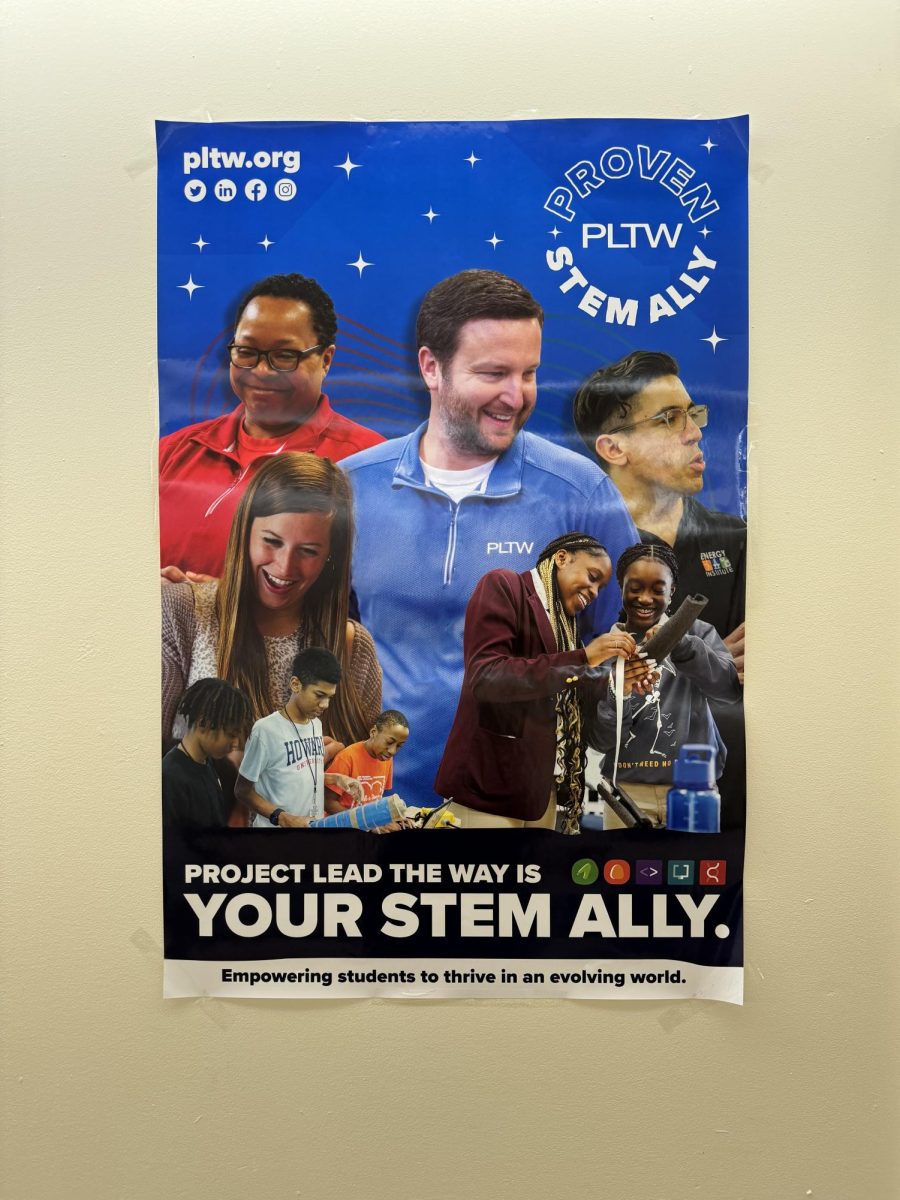Over the past few years, Scituate High School has adopted a new curriculum sponsored by the national organization Project Lead The Way (PLTW). PLTW has created multiple curriculums designed for students in elementary through high school. The organization works primarily in conjunction with real universities to create project-based courses. Project-based learning can often be a breath of fresh air for students who don’t work as well in exam-based environments that most American high schools like SHS offer today.
The PLTW courses are officially recognized by colleges and universities across the country, allowing students to earn college credit and qualify for scholarships for their work in PLTW classes – a system that works similarly to conventional Advanced Placement (AP) classes. Where the classes differ is that in AP, the curriculum is designed to prepare students for the final exam, while in a PLTW class, the final test is unrelated to your grade or recognition for taking the class.
Each PLTW class requires an extensive 80-hour course for instructors in order to ensure they are properly equipped and qualified to teach the course. Additionally, PLTW classes are designed to be taken in coordination with each other – students build upon the skills that they learn over the course of previous years in order to prepare for a final capstone project.
According to Ralph Perrotto, an engineering teacher at SHS, PLTW is very similar to SHS’s other engineering offerings; the only major difference is the status of the class and the recognition that it can garner from universities. Perrotto noted, “If you say you took Mr. Perrotto’s engineering class, who knows what Mr. Perrotto taught you? But in this case, everyone across the country knows what you learned.”
Currently, SHS has one PLTW Intro to Engineering Design (IED) class taught by Perrotto, as well as a PLTW Principles of Biomedical Science (biomed) class taught by Patrick Newton – chair of the SHS science department – both funded by a grant SHS received from the Massachusetts state government. Newton is only teaching the biomed class until SHS finds a new trained professional to teach the course, which was previously taught by SHS science teacher Tyler Roberts, who left SHS at the end of the 2023-24 academic year.
PLTW offers many different pathways with different careers and interests, but Scituate’s curriculum has a focus on engineering and biomed at the moment. Next year, SHS will be implementing a principles of engineering course that is designed to be taken after completing the already-offered IED class, and that will be followed by the capstone course that applies skills from the previous courses for student-directed personal projects. At SHS, there is also an ongoing discussion about implementing an environmental sustainability class designed by PLTW.
The first quarter of Perotto’s IED class this year focused on creating carnival games that utilized data about how many people would win and if the game would be profitable in a real life scenario. These games were displayed at the SHS homecoming club fair on Thursday, November 14th, where attendees were welcome to test the games.
Two students who took this class were sophomores Luke Wolf and Cole Pendleton. Wolf said his favorite part of taking the class was that the students were physically building their projects, noting it felt like they were problem-solving using realistic scenarios. Pendelton, on the other hand, said he planned to take both of the connecting PLTW classes that SHS is soon to offer; he hopes to pursue a career in aeronautical engineering after college. Wolf wants to do something related to aerospace or mechanical engineering in his future.
If you’re interested in STEM subjects, take a look at the SHS PLTW classes. For more information, students can speak to Perotto or Newton.
